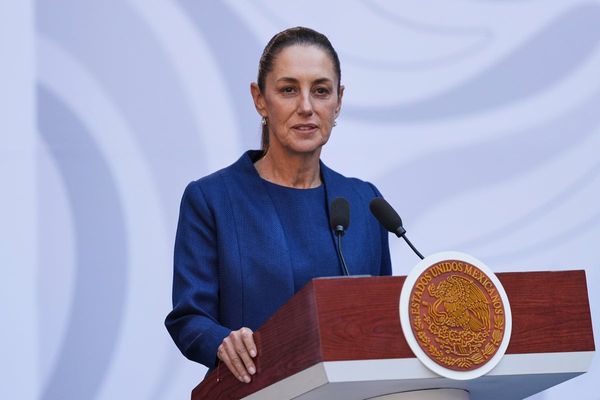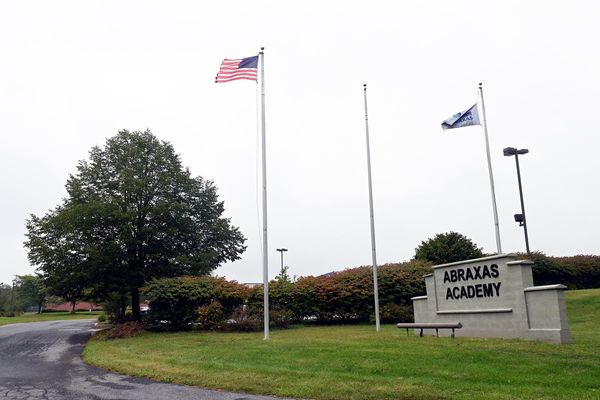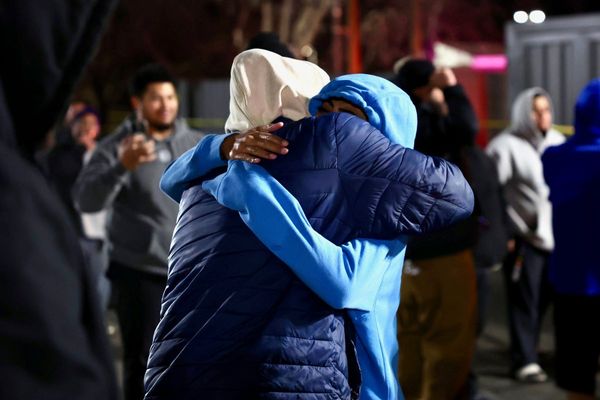Counting resumes in Victoria today to determine the final make-up of the state's parliament, in the wake of a Labor victory which has left the Coalition fractured and the future of the Liberal Party uncertain.
Re-elected Premier Daniel Andrews has promised to make the first 100 days of his third term about "getting things done".
For the sixth time in the space of seven election cycles, and for the third time under Mr Andrews, Victorian Labor recorded a win on Saturday night.
By Monday morning, the ABC's election computer projected Labor securing at least 52 lower house seats, comfortably more than the 45 needed to form government.
For voters, much will remain the same — the government will continue to build the Suburban Rail Loop, remove level crossings, recruit more healthcare workers and attempt to fix the ailing health system.
Key changes promised by Labor in the lead-up to the vote include more kinders, cheaper V/Line fares, free TAFE and the re-establishment of a renewables-only State Electricity Commission.
The state debt will remain a concern, with the projected surplus for 2025-26 relying in part on raiding contingency funds.
Before counting resumed on Monday morning, six seats remained in doubt. A seventh, Narracan, is deferred after the death of the Nationals candidate in the seat.
South-east of Melbourne, Labor is ahead in the seat of Bass. And in Hastings, where the ABC initially projected a win on Saturday night, Labor's celebrity candidate Paul Mercurio was slightly ahead in the count.
In the new electorate of Pakenham on Melbourne's outer eastern fringe, a handful of votes separated the Labor and Liberal candidates.
Coalition's future uncertain on multiple fronts
While the polls had Labor ahead throughout the campaign, the prevailing wisdom was that the Liberal Party would claw back the seats it lost in the 2018 "Danslide".
Labor suffered double-digit swings away from the party in Greenvale, Mill Park, St Albans, Yan Yean, Thomastown and Kororoit, but the swings were not big enough for the seats to fall.
Nepean is the only seat the Liberal Party appears to have gained from Labor.
The Nationals' comparative successes have prompted some within the junior Coalition partner to call for a rethink of their relationship.
The Nationals' leader Peter Walsh has said any public commentary about a split is not appropriate, but the party has removed itself from the Coalition in the past.
On Sunday, Opposition Leader Matthew Guy confirmed he would step down once seats had been decided and contenders for his replacement had confirmed their intention to run.
Former Victorian Liberal Party deputy director Tony Barry said replacing Mr Guy would only go so far, saying "we're foolish if we think it's just a leadership problem".
The Victorian loss echoed a national pattern. New South Wales and Tasmania are the only jurisdictions with a Coalition government after successive Labor victories across the country.
Prime Minister Anthony Albanese said the result in Victoria showed the Liberal-National Coalition could not find broad appeal.
"One of the things that we're seeing I believe is an alienation from younger voters from the Coalition," he told ABC Radio Melbourne.
Mr Albanese said issues such as climate change were still proving difficult for the Coalition to grapple with.
"It's just extraordinary that they don't seem to have gotten the message on that. They don't seem to have gotten the message on gender. They remain a party that seems incapable of selecting women to contest numbers that represent the population," he said.
"The Liberal Party have failed to come to terms with modern Australia and they continue to cuddle up to some far-right elements in the political system."
Swinging voter Sue told the ABC's AM program one of the reasons she did not vote Liberal this time around is because she did not know what the party stood for.
"They need to have more community between them and be more on the same page about their issues, because they have too much inside activity that is negative," she said.
"They need to really get on board and run the house like a proper house."
The Victorian Liberal campaign was marred by controversial candidates and preference deals.
University of Melbourne politics professor Sarah Maddison said the Victorian Liberals could look to New South Wales for a way forward.
"I think the New South Wales Liberal Party has, in lots of ways seen a revival of those, those kind of core liberal values and less of this flirtation with the extreme right," she said.
Independent threats fail to materialise
While counting in the Legislative Council will take much longer, it is likely to keep its complex and colourful mix of micro and minor parties. The Greens seem confident they will pick up extra upper house members.
But the major parties have kept their hold on the lower house. Two regional independents who won in 2018 — Mildura's Ali Cupper and Shepparton's Suzanna Sheed — lost their seats in a decisive Nationals sweep of the regions.
The Greens are projected to retain three seats and pick up one more in Richmond. After the ABC initially projected a Greens win in Northcote, Labor is now ahead in the count.
By Monday morning, the Liberal Party was slightly ahead in battles against teal independents in Hawthorn and Mornington.
Unlike in the federal election, where the Climate 200-backed teals recorded a victory in blue-ribbon Liberal seats, the movement may deliver no victors at the state level.
Climate 200 Convenor Simon Holmes à Court said the election was still a "big success from a meta view", saying climate policy had a prominent role in the vote.
Victoria's political donations laws, which are capped at $4,320 per donor, as well as very different state and federal election issues, may have affected the teals' cut-through.
"[It was] really great to see three campaigns very competitive in those seats," Mr Holmes à Court told ABC Radio Melbourne on Sunday.
"Whether they've got over the wall or not, they've certainly built a ladder right up to the top."
On the other side of Melbourne, Labor was able to fight off suburban independents in its heartland outer-west seats of Melton, Point Cook and Werribee.
However, with campaigns run by prominent locals highlighting what they said was neglect of the safe seats, the electorates may get more political attention over the next four years.
"I suspect we'll see more of that type of organised support behind independents in future elections," the University of Melbourne's Professor Maddison said.







